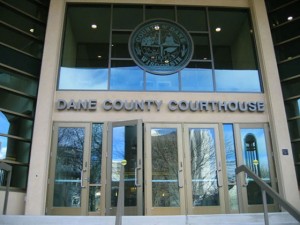Last week, all poker playing citizens in the state of Wisconsin had their eyes trained on a court hearing in Dane County. A group of poker-loving individuals, including Madison bar owner Mark Kroon, had petitioned for an amendment to declare poker a “game of skill”, thereby legalizing the activity. Unfortunately, their efforts were shot down when the judge ruled in favor of the current gambling definition.
 The current laws of Wisconsin state that poker is only legal when presented at an authorized casino located on tribal lands. Despite the game’s immense popularity in the Badger State, and the judge’s purported sympathy to the cause of Kroon and his poker playing cohorts, legalization just wasn’t meant to be—at least, not yet.
The current laws of Wisconsin state that poker is only legal when presented at an authorized casino located on tribal lands. Despite the game’s immense popularity in the Badger State, and the judge’s purported sympathy to the cause of Kroon and his poker playing cohorts, legalization just wasn’t meant to be—at least, not yet.
Circuit Court Judge Richard Niess delivered a disappointing ruling that spanned 4 minutes of verbal iteration. Although he called the activity “as much a part of the American fabric as baseball and apple pie”, he also concluded that he “can’t ignore the law”.
Mark Kroon—who notably ran deep in the 2015 WSOP Main Event this year, finishing 43rd for $164,086—was especially disheartened by the ruling. His bar in Madison used to play host to miniature poker tournaments with stakes of $25 to $50. He did not collect a rake or fee for the games, as doing so would clearly breach the state’s illegal gambling statutes.
Then four years ago, officials from the Department of Justice (DOJ) walked in. Kroon was informed in no uncertain terms that his poker games were illegal, and that he must stop hosting them immediately or suffer the consequences of the law.
When Kroon asked why he was being targeted when every bar in the area was doing the same, the DOJ responded that they had received complaints about the poker tournaments. Kroon’s estimation is that those “complaints” were coming directly from Wisconsin’s tribal casinos, whose tournaments weren’t attracting nearly as much patronage as the ones hosted in local bars.
Under threat of legal recourse and potential license revocation, Kroon complied. Although he wasn’t earning any money from the poker tournaments, and asserts that the poker players weren’t drinking enough to make a dent in his cash register, Kroon became adamant that the laws should be changed when a group of poker players approached him on the issue.
“A bunch of the players came up and said we should fight this,” said Kroon in an interview with CardPlayer Magazine just days after the disappointing ruling. “You can have dart and pool tournaments, but you can’t have poker tournaments.” It just didn’t make sense.
One of the poker players happened to be a lawyer. He told the group that if they were able to raise enough money, they could fight for legalization.
Kroon went to work raising money by hosting numerous poker tournaments with a 50/50 prize pool; half going to the winners, and the other half into a fund to sue the Wisconsin Attorney General. “That’s basically how it all got started”, admitted Kroon, saying they managed to raise $10,000.
Kroon said that during the hearing, the poker players were confident they would receive a positive ruling. They had an expert witness that proved poker was a game of skill, while the state had none. The DA tried to personally rebut the witness’s arguments, only to be quieted by the judge on the grounds that the DA was no expert on the matter.
Even when Judge Niess began reading his decision, it was expected that he would rule in their favor. But despite being sprinkled with promising statements of sympathy for their cause, the judge concluded his decision by citing a case in the Wisconsin Supreme Court dating back to 1964.
In that case, a bar owner had been convicted of running an illegal gambling ring for hosting poker games (and other illegal activities). When the case was appealed to the Wisconsin Supreme Court, the conviction was upheld. Thus, 50+ years later, Judge Niess felt he had to do the same.
The group of poker players has already expressed their interest in taking this case to the Wisconsin Supreme Court, but no action in that direction has yet been confirmed.
